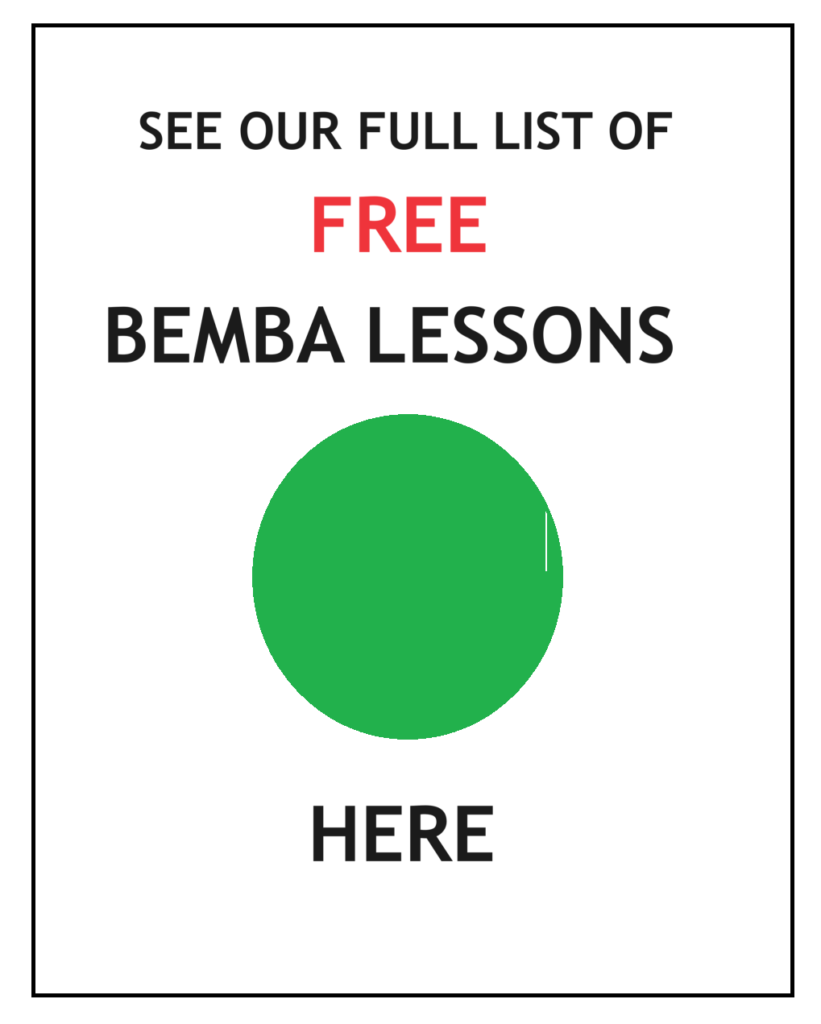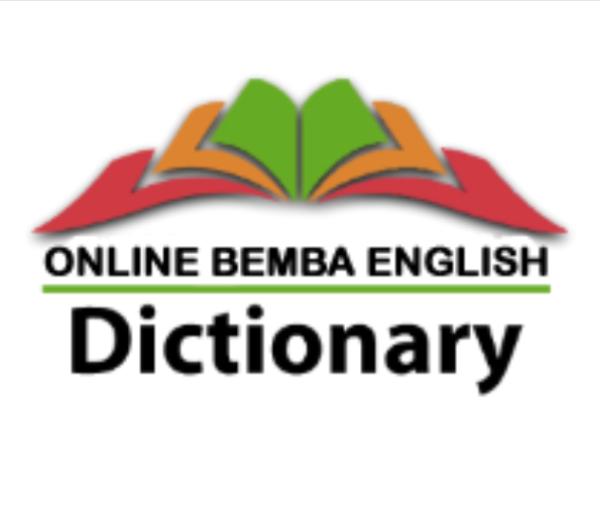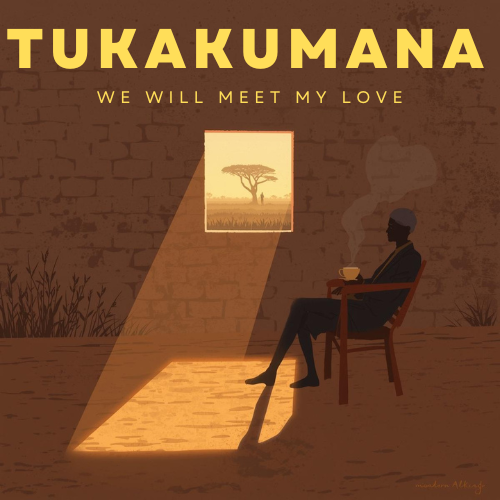https://kitweonline.com/category/kitweonline/discover-kitwe/culture/language/bemba-language-culture/bemba-lessonsBemba is one of Zambia’s second most widely spoken language. Some would say it was the most widely spoken. It is also spoken in neighbouring countries like the Democratic Republic of the Congo, Malawi, Zimbabwe, Angola, Botswana and Tanzania.
As a tourist visiting the Copperbelt you can expect to come across someone who only speaks Bemba. Learning a new language is part of the excitement of traveling to new places and getting to interact and integrate with local people. Bemba is a very respectful language.
Plural forms of pronouns are used to convey respect for peers and for those older than yourself. When used in the singular form, pronouns would be directed at young children. The curious fact is that traditional rappers at the king’s court actually use pronouns in the singular to enhance the veneration of the king. But this is very advanced language! In general any man older than yourself is addressed as “father” – (ba) tata, an older woman is addressed as “mother” – (ba) mayo.
Bemba spoken along the line of rail (Kitwe to Livingstone) contains some English and Nyanja terms. English-Bemba terms:
| Singular | Plural | ||
| Be careful | Cenjela | Cenjeleni | |
| Call | Ita | Iteni | |
| Carry | Senda | Sendeni | |
| Close | Isala | Isaleni | |
| Come here | Isa kuno | Iseni kuno | |
| Cut here | Putula apa | Putuleni apa | |
| Don’t make noise | Wipanga icongo | Mwipanga icongo | |
| Drop | Ponya | Ponyeni | |
| Fetch | Fwaya | Fwayeni | |
| Gently | Bwinobwino | ||
| Go Away | Kabiye | Kabiyeni | |
| Go backwards | Bwelela kunuma | Bweleleni kunuma | |
| Go forward | Kabiye kuntanshi | Kabiyeni kuntanshi | |
| Go sideways | Kabiye kulubali | Kabiyeni kulubali | |
| Go there | Kabiye kulya | Kabiyeni kulya | |
| Go to the left | Kabiye kukuso | Kabiyeni kukuso | |
| Go to the right | Kabiye kukulyo | Kabiyeni kukulyo | |
| Hit | Uma | Umeni | |
| Hurry up | Endesha | Endesheni | |
| Kneel down | Fukama | Fukameni | |
| Let’s go | Tiye | Tiyeni | |
| Lie down | Sendama | Sendameni | |
| Lift | Imya | Imyeni | |
| Listen | Umfwa | Umfweni | |
| Little by little | Panono panono | ||
| Look here | Lolesha kuno | Lolesheni kuno | |
| Look there | Lolesha kulya | Lolesheni kulya | |
| Open | Isula | Isuleni | |
| Paddle | Oba | Obeni | |
| Pour | Itila | Itileni | |
| Pull | Tinta | Tinteni | |
| Push | Sunka | Sunkeni | |
| Put down | Bika panshi | Bikeni panshi | |
| Shout | Punda | Pundeni | |
| Shut up/Be quiet | Ikala tondolo | Ikaleni tondolo | |
| Slowly | Panono panono | ||
| Stop/End | Leka | Lekeni | |
| Take that | Bula cilya | Buleni cilya | |
| Take this | Bula ichi | Buleni ichi | |
| Throw | Posa | Poseni | |
| Walk(quickly) | Endesha | Endesheni |

For a more comprehensive cover of the language, grab yourself an English-Bemba dictionary and enjoy the journey of learning a new language.


Hi there,
I’m a Belgian national and just established a new company in Solwezi, together with my Zambian business partner. As I intend to stay in Zambia for a very long time, I thought it would be nice to learn at least the most widely spoken dialect of the Zambian people, being Bemba, if I’m not mistaken. And most of all, I also would like to do so just out of respect for them. Your site is very useful in learning Bemba, and I thank you for that, but I know learning on how to pronounce is equally important as just to learn words. Could you please tell me if there is a way to solve this problem ? And could you also tell me where and how I could find books that could also help me to learn this very beautiful language ? Not in Solwezi, as I found out…
Thanks so much for your attention and for your quick reply.
Natotela !
Christian
Hi Christian, I only know a few words but it seems that a c is pronounced ‘ch’ (with K and S being the same as in English). Also good look with pronouncing the Bemba letter “ng” ;). Lesa Mupalu, Jonathan
Hi Christian
You can vist any of the following bookshops in Kitwe for your books in Icibemba.You can visit Christian Bookshop at Sanlam building and it is next to Zesco Customer Service Centre.You may also visit BooKNook along Obote Street.BookNook is just opposite the Kitwe District Commiszioner’s Office.You may also visit Book World along Kabelenga Street. Book World is on the new building next to the Catholic Church in Kitwe City Centre.You may also go to ESKYATS on Matuka Avenue.ESAYATS is just around where the Mposa Mabwe statue is situated in Kitwe main business Centre.There are selected street vendors who have books in Icibemba.The other place where you can buy your books in Icibemba is at the Copperbelt University Campus.There are a number of bookshops there.The Copperbelt University can be accessed through Nkana East on Chiwala street or on Jambo Drive in Riverside.
“COME HERE” DOES NOT MEAN ISA. IT MEANS ISA KUNO.
DO NOT MISLEAD LEARNERS.
Ba Peter,
Thank you for your correction. We have changed the script accordingly.
The aim is to inform and with your help and the help of other readers, we will do that.
Thank you very much for your contribution.
“COME HERE” in its singular usage indeed means, ISA KUNO.However,it can also be plural.In this case it means ISENI KUNO.
Thank you for this helpful site. I’m hoping to learn Bemba so that I can teach my (adult) friend to read. She lives in Cape Town and speaks English. I’m hoping that she will be able to read if she learns to read in her mother tongue. That would be my greatest joy!
Hi Denise,
It sounds like you have an interesting goal. I hope you will find our lessons helpful.
Let me know if there are particular topics you would like us to cover.
Exciting time for me on a journey to learn Bemba
How do you say “I’ve never been there in Bemba….Natotela in advance.
Hi Rex,
“I’ve never been there” = “Nshayako. ”
To go = Ukuya
I’ve never = Nsha …
There = Kulya (contracted to “ko”)
Ho do you say this in bemba. “I’ve been away for a long time”
Would you please help with this translation: ” Mwalamba mwani muchikope” and what does it mean.
Hi Kim. I’m reliably informed that “Mwalamba mwane muchikope.” (note spelling of “mwane” – used as a sign of respect) is a Kaonde compliment meaning “You have a beautiful image.”
I like icibemba icinecine because iam bemba by tribe.
What does this Bemba walisa nolubuli mean in English?
Let’s go in bemba can be translated as “tuleya and in plural in tuleyeni” and the pronunciation tuleya will differentiate it from sounding like its a question
translate “naiwe kali lowesha” to english.
Hi Laura,
“kalilowesha” means “It is very sweet.”
“Naiwe” is equivalent to “you” as in “I am telling you ….”
thanks for good lesson
Hi John. Thanks for your feedback.
i love bemba language,but am a Nigerian
Hi Usman,
I think a language is like a song in a different language. You can enjoy it even before you understand a word.
Is there videos I can learn from
Hi Alicia. Kitweonline has a few videos on YouTube, and there are some more from other sources that you can watch there.
Hello, i think this is a great website. Is there anywhere i can learn with a real person, someone willing to tutor me. I think that will help so much with my spoken bemba. Thank you so much .
Hi Elaine.
Kitwe Online has no current program but one place you could try is Alliance Française of Lusaka. Plot 22725 Alick Nkhata Avenue, Long acres. Tel: +260 211 253 467. Email: secretaryaflusaka@gmail .
I’d like to learn to speak Bemba.
Thank you very much for this great work.
Could you please tell me what Nakulalolela means?
Hi Peter.
“Nakulalolela” = “I will be waiting.”
Correction: I am not a bemba, but l love bemba language and bemba women.
What is contracted in ‘Nshayako’ is ‘uko’ which becomes ‘ko’ and not ‘Kulya’ as stated.
Tony, you have a point.
Nshayako = “I’ve never been.”
Kulya = “there”
You could also consider “I’ve never been” as a shortened form of “I’ve never been there.”
Similarly, “Nshayako kulya” (or “Nshayako uko”) can be used interchangeably as the full term.
Hi,you stopped to teach bemba?because the line is become very quiet,what happened?
Hi Norah, life got in the way.
We hope to do a few more in the coming year.
How to say ( I love you) in bemba language?
It is Nalikutemwa, ukutemwa meaning to love, ku is you, and Nali I have.
Thank you for a great lesson. I will do them all. I am from Sweden but hope to learn Bemba.
Hi Daniel. You’re most welcome to the lessons. Thank you for your feedback.
Hi, I am from Lubumbashi, in DR Congo. I am interested at learning Bemba.
Hi Sam. We are keen to find a way forward. Please check your emails for our more detailed reply.